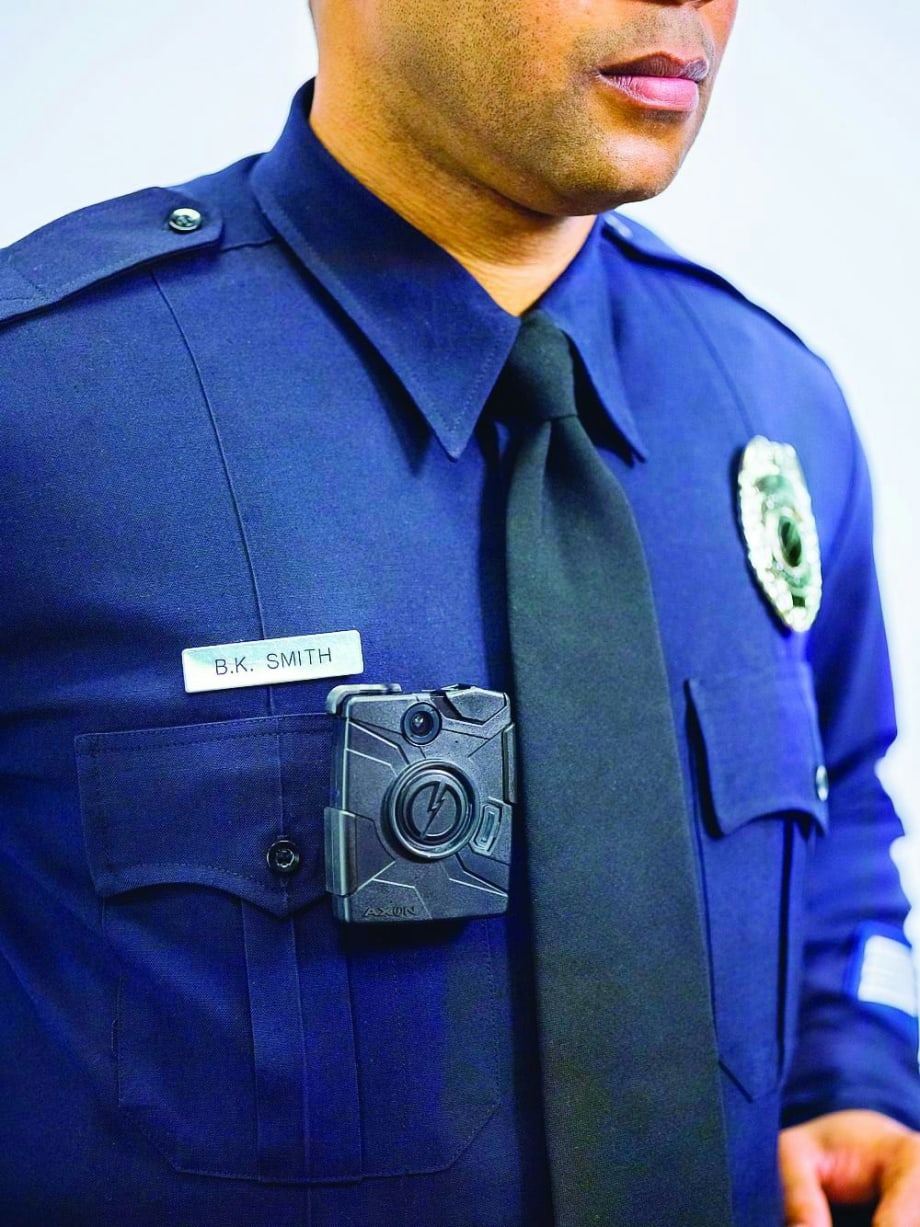The next generation of police software will use machine learning technology to help officers automate tedious and time-consuming tasks.
Loosely defined, artificial intelligence is the ability of a machine to learn and apply what it has learned to a task or tasks. The concept summons forth all sorts of science fiction horror story scenarios right out of the "Terminator" movies when you take it to its extremes. There are even some technology geniuses like Elon Musk who are warning AI could bring doom for humanity.
Such far-fetched predictions have some people dreading the AI future. But they do a disservice to the technology, which will be the foundation of how people live, work, and play as we progress through the next 20 or so years of this century. Artificial intelligence is the key to such future technologies as self-operating vehicles, smart delivery systems, and autonomous robots. It will also be the foundation for the next generation of law enforcement tools.
The first AI-driven law enforcement tools are going to involve evidentiary video management, and they are now arriving on the market or are soon to be launched. This year two of the biggest makers of body-worn cameras—Axon and Vievu—either acquired or signed agreements with companies that have developed artificial intelligence systems.
The initial goal behind these business moves is to offer customers tools for eliminating or reducing the repetitive tasks they now face in examining, analyzing, and redacting video.
Video Review and Search
Many law enforcement agencies do not have the resources to view all of the video currently being captured by officer-worn and vehicle systems. Worse, a major incident can result in an agency being inundated with officer-worn, in-vehicle, civilian smartphone, and surveillance camera video. In extreme cases such as the 2013 Boston Marathon
Bombing, thousands and thousands of hours of evidentiary video has to be reviewed.
Reducing this workload is going to be one of the first applications for AI in law enforcement operations. In February, Axon (formerly TASER International) purchased Dextro and Misfit and established Axon AI. Dextro's technology is designed to reduce the effort involved in reviewing video for critical information.
Axon CEO Rick Smith says the technology his company acquired from Dextro can scan video for specific objects and actions and even transcribe the audio. "The software can locate, for example, a typewriter. It can also look at actions that occur across time like a person typing," he explains. Smith says Axon will be providing customers with "pretty robust" video search functionality in 2018.
Video search capabilities will also soon be available to Vievu customers through an agreement with Vertitone, a company that licenses video and audio search and analysis tools from other providers and blends their capabilities in an AI-based ecosystem that learns when to use a specific tool or set of tools to perform given tasks.
John Newsom, EVP and GM for Veritone's government vertical, says the company's blending of capabilities from a variety of video and audio processing engines produces more accurate results for users than they would receive from using one of the engines by itself. According to Newsom, Veritone is capable of performing very high-scale operations.
"If a client has hundreds, thousands, or even millions of hours of content, Veritone can process it at very high speeds searching for faces, words, objects, tattoos, and other [targets]," he says.
Newsom says the agreement with Vievu (a Safariland Group company) is just part of Veritone's entry into the law enforcement market. The company currently has 10 to 12 law enforcement agency clients and it offers its services to any agency whether it uses Vievu systems or not. The Veritone technology can ingest video from smartphones, surveillance cameras, body cameras, and in-vehicle cameras.
The primary law enforcement application for Veritone's technology is in investigations, according to Tom Avery, a member of the company's government team and a former sworn investigator. Avery says there is a lot of available evidence that investigators either cannot access because of technology issues or do not have time to process. "With Veritone you can expedite the process of reviewing the video by letting the machines pore through it," he says.
Axon's Dextro technology can also speed up the video review process. "The technology can give a supervisor the ability to search a video for a specific activity and begin the review at that point. Another option is to watch the lead-up to the incident at higher speed.
"If they feel they need to watch everything, they can speed through the part where nothing happens at say eight times real speed, then slow it down to real time when the officer is interacting with the subject. We believe that will cut the time spent reviewing video by 70% to 80%," Smith says.
Automating Redaction
After the cost of storing and managing data, redaction is one of the most critical concerns for law enforcement agencies using body-worn cameras. Activated video cameras capture everything in their field of view, including minors, witnesses, and undercover officers. So there are people in the evidentiary video footage captured by officers who must be protected from public exposure. Which means before an agency can turn over video to the news media, it must be redacted. Note: Redaction does not alter the original video, just the copies.
Many of the makers of law enforcement body cameras offer software that can be used to redact the footage. Currently, these tools require a person to view the video and mark persons for redacting. With varying degrees of success, the software then tracks that marked person and blurs their faces. But in the near future AI may change the way agencies do redaction.
Using technology it acquired in the purchase of Misfit, Axon is building a redaction product that will exploit AI capabilities to make the redaction process easier and more accurate, according to Smith. The company plans to introduce its enhanced redaction tool, Redaction Studio, at the International Association of Chiefs of Police (IACP) conference this month. "If you've ever used Final Cut Pro or any of the more advanced video editing software [the capabilities will be familiar to you]. It's a much richer interface where we're adding these AI tools on top," Smith says.
The AI in Axon's new Redaction Studio will learn to correct user error, Smith says. "Our goal here is that we will have automated redaction tools that are outperforming human operators and doing it with little or no labor in a couple of years," he
explains.
Easier Report Writing
One of the most eagerly awaited AI innovations in law enforcement is the automated report based on video evidence. Smith is a big advocate for the development of this technological breakthrough, and he believes officers everywhere will celebrate the day they no longer have to fill out forms. "The cops signed up for this career because they wanted to do police work," Smith says. "But today their primary job is data entry clerk with part-time work as a cop."
He says in the next decade a body camera connected to a record management system (RMS) running AI will do much of the report writing that officers do today. "About five years ago we had this ah-ha moment. Once you're making audio and video recordings of every incident, it's really sort of duplicative to have written reports," Smith says.
Smith concedes that some aspects of written reports will still have to be added by the officer. But he believes AI software can process data from video footage and create a report that just needs some finishing touches by the officer. Such technology will be a force multiplier for agencies, as it will mean officers will spend less time doing data entry and more time fighting crime.
True automated reporting as envisioned by Smith won't happen overnight, but some aspects of reporting could be automated much sooner. Smith points out that even today when many officers have ID scanners others often have to take out a pen and paper and write down a person's information in the field. He wants to have a capability in the Axon system that would allow an officer to video the ID and the data would be transferred automatically into the RMS. Smith says one of the reasons Axon bought Dextro is that the company's AI technology can search through a video and find an image such as an ID and extract the information from it.
Spotting Bad Guys
One of the most controversial aspects of law enforcement evidentiary video processing is the application of facial recognition tools to the images. AI technology will make this easier to do and more accurate. And that worries some people.
Smith says there are good and bad uses of facial recognition and it comes down to issues of civil liberties. He gives the example of using facial recognition to pry into people's personal lives as a bad use. "However, if a police officer is interacting with someone who just committed a crime and that person has no identification on them, most people would agree it would be reasonable to run facial recognition on them."
Veritone's Avery agrees. He believes AI technology could make the public much safer by matching booking photos to surveillance video, a task that now has to be done manually.
"Law enforcement is sitting on a lot of data that it can't use," he says. "At many agencies, jail photos are not in the database. Where Veritone would fit in is we could consume the booking database to create a known offender database. Video could be processed through our ecosystem to get matches," he explains.
Role of the Cloud
True artificial intelligence requires powerful computers such as supercomputers or a set of computers connected in a neural network. It also requires a lot of data for the machines to ingest for education, and that's where the cloud comes in.
"In order to make AI work well for law enforcement, the data has to be somewhere it's accessible like in the cloud," Smith says. "If every agency has its own data, they're not going to have enough to effectively create AI tools. In a centralized model, you can train the AI."
Axon currently manages 14 petabytes (14 quadrillion bytes) of data for clients of Evidence.com. Clients can opt in—and some have—to let their data be used in AI research. Smith says the company is very careful with its clients' data. "It's not our data," he emphasizes.
Not a Monster
While doomsday predictions about what AI will mean in the future are rife in the press, in the right hands, this tool has the potential to do a lot of good for law enforcement and public safety.
"People hear artificial intelligence and it’s this blurry kind of amorphous thing. So they make assumptions that it means killer robots like in the 'Terminator' or that as soon as an officer sees my face he will arrest me based on AI. But what we are doing is enabling a human being to get faster access to the information needed to make a decision," says Veritone's Newsom.
Smith says Axon knows there is the potential for problems with AI, and the company is taking steps to ensure the tools it produces are not abused. "When we first announced that we acquired these AI teams, the media produced stories about how Axon was going to enable an Orwellian surveillance state." To answer such concerns, Axon has established an AI ethics and advisory board. "We are bringing in civil libertarians and others to serve on that board. We want to build the right world, not the wrong world," he says.













